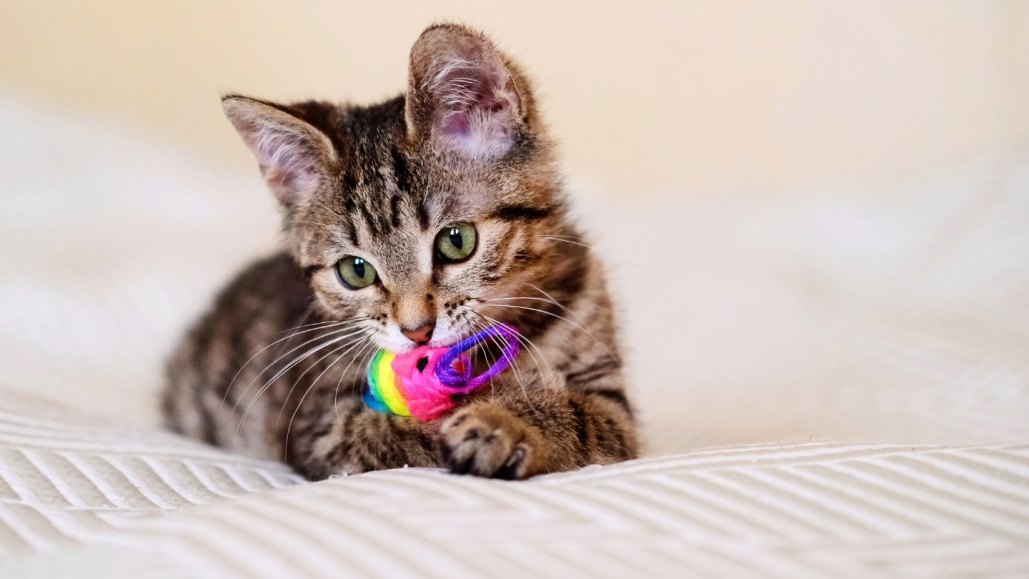Cats Engage in Fetch When They Choose To

Cat owners may not be shocked to learn that cats will play fetch, but only when they feel like it.
The decision to start and stop a game of fetch seems to be dictated by the feline players, according to a survey of more than 900 cat owners. Most of these cats appeared to adopt the behavior autonomously, without any explicit training from their owners. These findings were published on December 14 in Scientific Reports, by animal behavior scientist Jemma Forman and her colleagues.
"Ultimately, I believe that the cats are calling the shots," says Forman from the University of Sussex in Brighton, England. This study provides a fresh insight into cat behavior, which is a less studied field compared to the behavior of dogs.
While it is known that cats can play fetch, not much research has been conducted on why or how they engage in this activity or if training is required. This new study was inspired by a Sphynx cat named Bear, who took his owner, Elizabeth Renner, a psychologist at Northumbria University, by surprise when he brought a toy to her.
Renner joined forces with Forman and David Leavens, another psychologist from the University of Sussex, to develop an online survey to explore the phenomena of fetching cats. The team collected survey responses through social media from people who own or previously owned cats that play fetch.
The research team wanted to determine who initiated the game of fetch. Most of the time, it turned out to be the cat. Out of 1,154 cats surveyed, over 94 percent were reported to have not been formally trained to play fetch by their owners. The survey also uncovered some interesting cat facts, such as favorite fetching items (toys, crumpled paper, and hair ties among others) and the breed that fetches most (Siamese).
Dennis Turner, a cat behavior expert not associated with the study, suggests that owners might be inadvertently training their cats. A toy tossed from your feet could be seen as a reward for the cat, enhancing the fetch behavior. "Cats learn very quickly - if they are inclined," he says.
It's also possible that cats are training their humans, Turner suggests. One survey respondent discovered her cat was only interested in fetching pom-poms of a specific size. "I bought a larger pom-pom, and she rejected it," the owner stated. According to Turner, a lot of learning happens reciprocally in human-cat relationships.
The study's results provide plenty of material for future research. For instance, determining how many cats play fetch or if fetch is a form of social interaction between humans and cats. The researchers are now calling for cat owners to participate in a new study that could help find answers.
Forman reminds owners that not every cat will fetch like a dog and urges them to be aware of their animals' needs. She says, "Cats are individuals, and they have very distinct personalities." Cats may wish to eat, play, or do something entirely different, such as walking over your keyboard or sleeping on your face.
The reporting was assisted by Luis Melecio-Zambrano.




